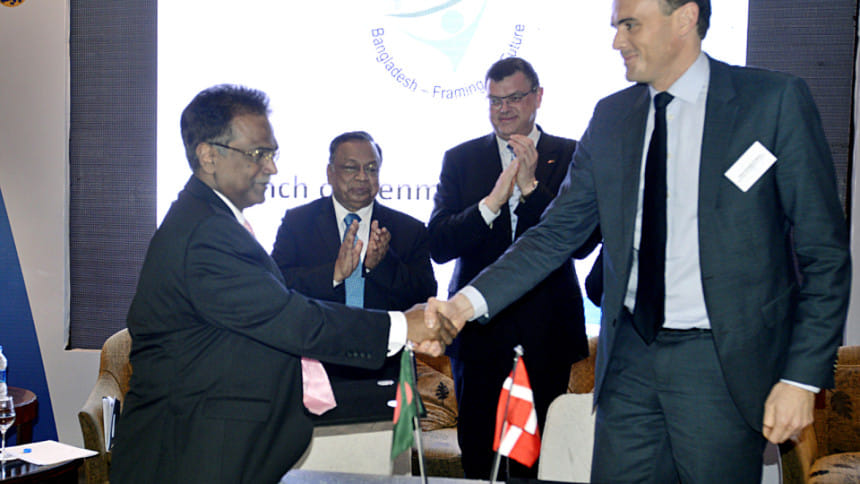Danish minister calls for more focus on worker rights

Bangladesh has progressed a great deal in workplace safety and labour rights in the garment sector after the Rana Plaza building collapse in 2013, Danish Minister for Trade and Development Cooperation Mogens Jensen said yesterday.
Textile production in the country has now changed and is getting a better environment, and at the same time, business is improving as well, Jensen told reporters at the Westin Hotel in Dhaka.
But there should still be more focus on worker rights and working conditions in order to get a real sustainable condition all over the country, he added.
Denmark and Bangladesh yesterday signed an agreement in which the Danish government will deploy a special adviser to work with the labour ministry in Dhaka with the view to improve the working conditions further, he said.
The minister was impressed with the economic growth that the country has witnessed over the decades.
“There is no doubt that more economic growth and wealth distribution in society is important for Bangladesh. And to increase growth, to increase wealth, you need to invest in the production sector -- not only in garment, but also in some other promising sectors like leather and shipbuilding.”
The country needs to improve both labour and environmental conditions to achieve higher production quality, said Jensen on the export potential of the other sectors. On the inflow of foreign investment and current political unrest, the minister said: “It's crucial to obtain one thing; the investors look for political stability.”
The political situation needs to be improved, not just for the sake of investors, but also the people of Bangladesh, he added.
“And of course it is crucial for me to say that the Danish experience when it comes to developing our country is that it needs full democracy with media freedom, press freedom, freedom of speech, the freedom to assemble, freedom for NGOs to work, which are very essential to developing society,” Jensen said.
Sometimes it is annoying for the government when the media and NGOs become critical about the government, he added.
On media freedom and democracy, he said the fundaments of the Danish development policy are human rights. “So every partner country we work with, we raise the questions of human rights.”
He has discussed the human rights issue with the Bangladesh government and his government will take a programme for the next three years to make improvements.
The minister recognised the fulfilment of major conditions given by the United States Trade Representative and the Sustainability Compact that was signed by the government in Geneva in 2013, with the European Union involving the International Labour Organisation to commit responsible business behaviour.
Jensen lauded the labour law amendment, recruitment of more than 200 additional factory inspectors, completion of preliminary inspection of more than 2,000 factories by the Accord and Alliance, registration of more than 236 trade unions and launch of a publicly accessible database on garment factories and a telephone helpline for the workers.
Jensen, who also travelled to different parts of the country to see the progress of projects financed by Danish International Development Agency, said more than a million people have been given access to safe water and one million farmers have been given assistance by the agency so far since 1972.
On trade between the two countries, he said Denmark has a great trade deficit with Bangladesh and it is interested in investing in renewable energy and the water sector.
Currently, 60 Danish companies are in operation in Bangladesh. He suggested developing the leather and shipbuilding industries, as those have good potential.

 For all latest news, follow The Daily Star's Google News channel.
For all latest news, follow The Daily Star's Google News channel. 



Comments